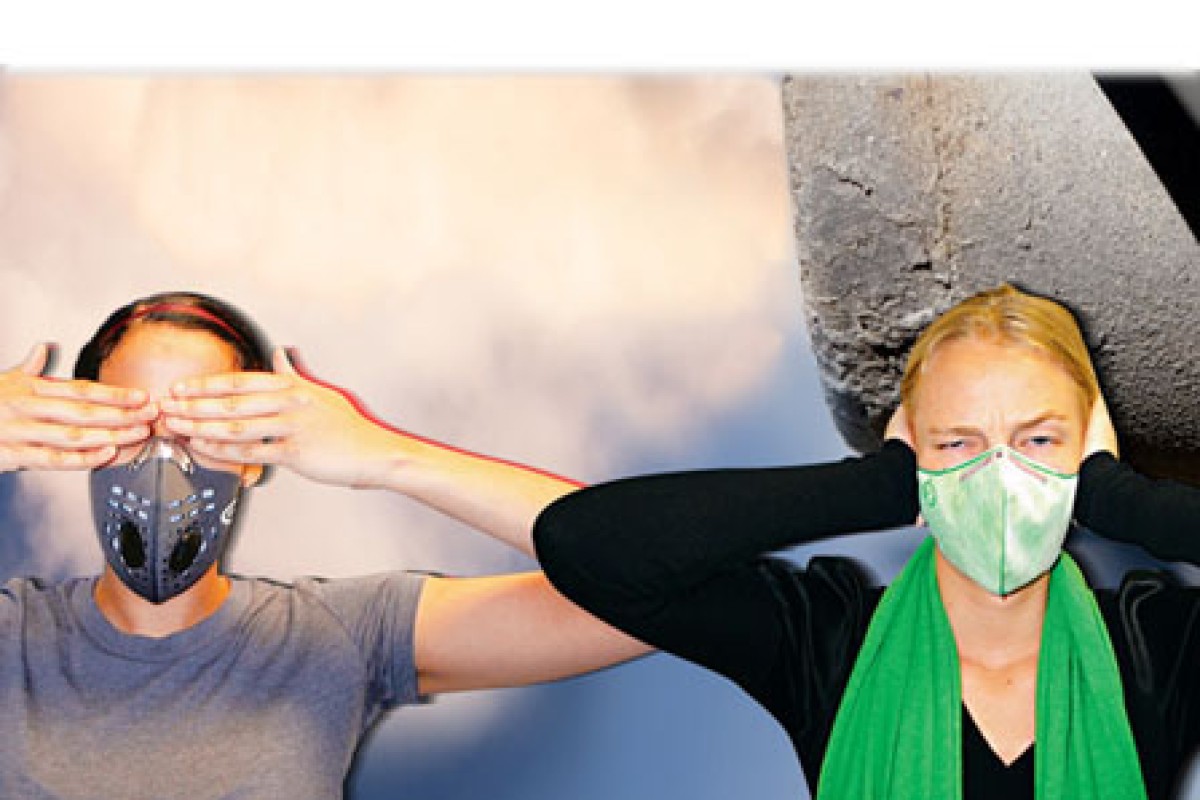 iii
iiiRush hour is all too often a gridlock, but the emissions from bumper-to-bumper traffic don't have any trouble getting around.
Vehicle exhaust fumes are the by-product of the combustion process and are a toxic cocktail of cancer-causing compounds such as sulphur dioxide, ozone and particulate matter.
Heath effects range from respiratory irritation to lung-tissue damage that may lead to heart attacks, strokes and cancer. In a recent study by Magnus Lundback of Ume? Sweden's University Hospital Department of Respiratory Medicine and Allergy found diesel exhaust led to hardened arteries, increasing the risk of heart attacks.
Roadside air pollution has soared over the past four years, with Environmental Protection Department statistics posting more than 1,000 hours of 'very high' air pollution in the first half of this year - a six-fold jump compared to the first half of 2005.
The areas most affected were Causeway Bay, Central and Mong Kok.
With little hope of relief in car-clogged Hong Kong, what can commuters do to keep vehicle exhaust out of their lungs?
According to a study published in the March edition of Particle and Fibre Toxicology, wearing a respirator mask may reduce the risk of heart attacks.
The report is based on research by Jeremy P. Langrish of Edinburgh University's Centre for Cardiovascular Sciences and partners from the Netherlands and the mainland.
The study compared healthy volunteers with masks and others without amidst the ambient pollution of Beijing. Those with masks were found to be less affected by exposure to air pollution.
But, according to Chinese University School of Public Health professor Wong Tze-wai, respirator masks may only be half the solution. 'You need to tackle two types of pollutants in vehicle emissions. Solids, such as particulate matter ... and you also have to deal with gases such as nitrogen oxide, sulphur dioxide and ozone,' he said.
While surgical masks do not provide any protection from particulates because they lack seals, 3M's N95 masks can filter out particulates. The downside is they quickly become stuffy and breathing can be hard work.
This could be a problem for people with underlying respiratory problems, Wong said.
Meanwhile, the Environmental Protection Department not only recommends that people consult their doctor to see if they can wear masks safely without complications, it also advises that masks are generally unnecessary.
"Given that our API [air pollution index] seldom exceeds a level that warrants the adoption of protective measures, we do not consider it necessary and effective for a normal person to wear masks," the department recommends.
But Wong, who is a member of the Environmental Bureau's air quality review group advisory body, argues the department's position on API levels is not sound because it is based on antiquated standards. He said even a modest update of objectives for air quality - which would be a more comprehensive assessment of pollutants - would lead to a 'considerably worse' API than the department currently admits to.
All the same, Wong says there is still insufficient scientific evidence for the benefits of wearing masks in polluted areas. He and his colleagues are researching how individuals can protect themselves from the worst effects of the city's pollution, and certain masks may be a solution.
A good mask, he says, would combine a particulate filter with a chemical filter to absorb the gasses in vehicle exhaust. But he adds that this is only possible if you wear bona fide gas masks, such as those that use activated charcoal filters.
Types of mask
A guide to some of the masks on the market and how to use them.
Surgical mask
More ornamental than functional, these are the cheapest masks but offer little protection because they fit so loosely. One-time use only. Cost $
3M N95 particulate respirator
Popular during the Sars pandemic, this comes with or without an exhale valve. It has a good seal but users have to breathe harder for models without a valve. Disposable. Cost $$$
3M N100 particulate respirator
A more expensive but longer-lasting mask, the N100 also comes with an exhale valve. Reusable and good for up to 150 hours. Cost $$$$
Filligent AirMask
Anti-Pollution Face Mask
This is due out early next year and will filter out super fine particulates and neutralise most harmful gases in vehicle emissions. The green filter gives you the appearance of wearing an anti-pollutant leaf. Good for 12 hours of active wear. Cost $$
Respro City Mask
A menacing-looking fitting, this mask was developed for motorcyclists plying smoggy roads and comes with replaceable filters and exhale valves. Made of Neoprene, the mask has a charcoal filter. Good for one to two months per filter. Cost $$$$$
